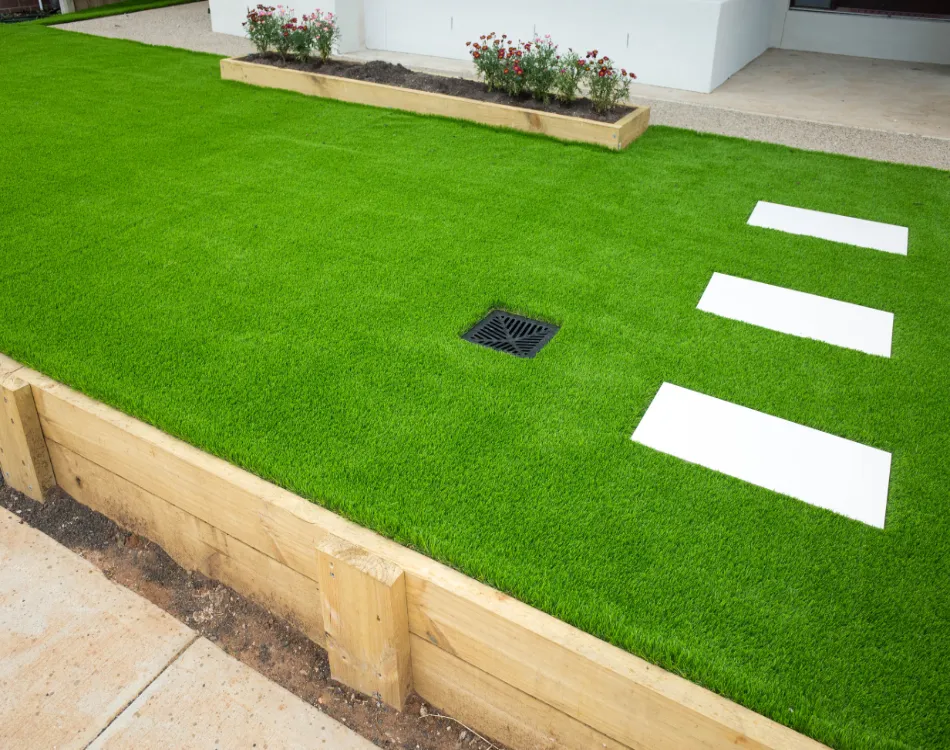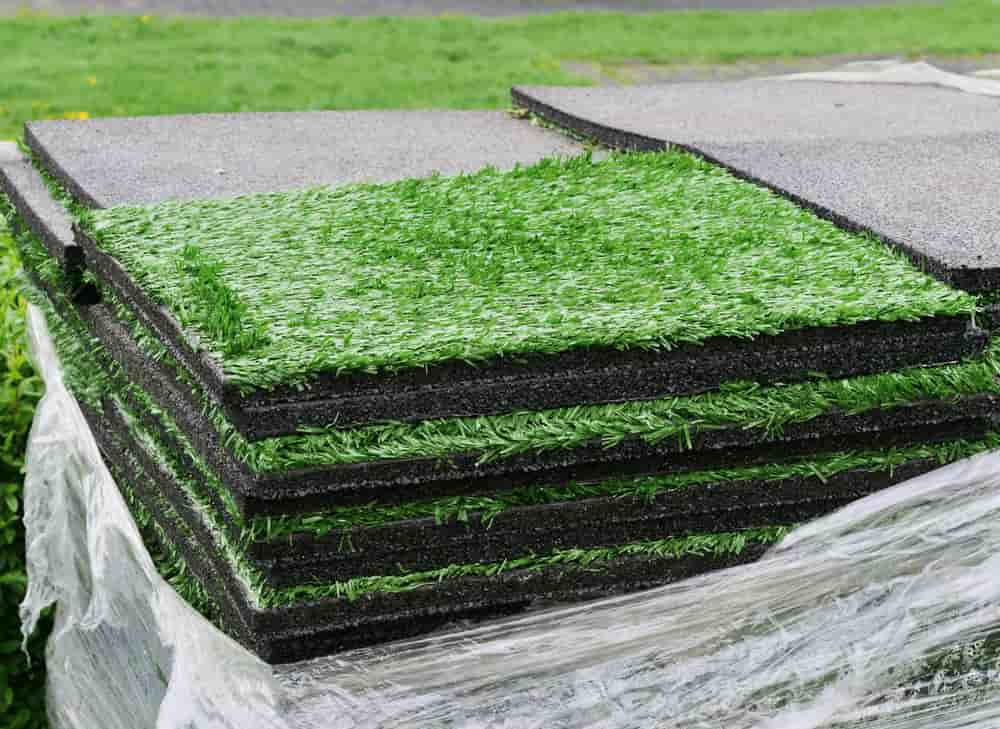Delve Into the Environmental Perks of Opting for Artificial Lawn Solutions
The adoption of synthetic grass remedies presents an engaging chance to address pressing environmental challenges. By significantly reducing water usage and lessening the application of damaging chemicals, these alternatives not just advertise sustainable landscape design but also shield neighborhood ecosystems. The lower carbon impact associated with reduced maintenance tasks contributes to an extra lasting method to land administration. However, the effects of these benefits extend past plain conservation initiatives, questioning regarding their long-term impact on environment preservation and general eco-friendly equilibrium. Exploring these dimensions reveals an intricate interaction worth considering.
Water Conservation Advantages
One of the most substantial advantages of artificial grass is its capacity to preserve water. In contrast, synthetic grass does not require watering, dramatically decreasing the general need for water resources.
By getting rid of the requirement for routine watering, synthetic grass adds to sustainable landscape methods and aids alleviate the ecological influence of extreme water consumption. Additionally, the preservation of water expands to the reduction of overflow, which can lead to soil disintegration and waterway air pollution.
In addition, the installation of artificial turf permits homeowners and districts to assign water sources a lot more effectively, concentrating on crucial usages such as drinking water and agriculture. The change towards synthetic grass not just advertises responsible water usage however also aligns with more comprehensive environmental objectives targeted at maintaining natural deposits.
As neighborhoods significantly prioritize sustainability, the water preservation benefits of synthetic turf present an engaging case for its adoption in commercial and property landscaping tasks.
Lowered Chemical Usage
The shift to synthetic grass substantially decreases the dependence on chemical therapies frequently utilized in all-natural turf upkeep. Standard turf monitoring generally includes the application of chemicals, herbicides, and fertilizers to advertise growth and control parasites. These chemicals can pose dangers to human health and wellness, local wild animals, and the setting, adding to dirt and water contamination.
In comparison, man-made grass eliminates the requirement for these unsafe compounds. By decreasing the release of synthetic compounds into the community, man-made grass advertises healthier dirt and water systems.
Additionally, the lack of chemical runoff related to man-made lawn setups helps secure neighborhood rivers from pollution, supporting aquatic life and keeping biodiversity. Phoenix turf companies. As areas significantly prioritize sustainable techniques, choosing synthetic grass presents a viable service that lines up with ecological conservation goals. Via this change, building proprietors can delight in rich environment-friendly rooms without jeopardizing eco-friendly health and wellness, leading the way for a more sustainable future
Reduced Carbon Impact

Additionally, the installation of synthetic lawn can cause considerable water conservation. All-natural grass call for considerable quantities of water for irrigation, which not just includes in the carbon impact related to water removal and treatment yet also pressures regional water sources. On the other hand, synthetic grass requires marginal maintenance, calling for no watering, thus significantly decreasing water use and its associated energy expenses.
In addition, the longevity of synthetic grass adds to its lower carbon influence. With a lifespan of as much as 15 years or even more, the requirement for frequent replacements is decreased, causing less waste and reduced power intake in manufacturing and disposing of conventional grass alternatives. In general, synthetic grass offers a sustainable alternative for environmentally aware landscaping.
Environment Preservation
Environment conservation is a crucial factor to consider in the dispute over landscape design choices, particularly when comparing synthetic lawn to all-natural lawn. All-natural turf lawns frequently require comprehensive maintenance, including the use of fertilizers, herbicides, and chemicals, which can adversely affect regional communities. These chemicals can seep right into the soil and check this rivers, harming indigenous vegetation and fauna and disrupting local environments.
Fabricated turf removes the requirement for damaging chemicals, thus protecting nearby wild animals and keeping the stability of bordering ecosystems. The setup of man-made lawn can lead to the conversion of previous yard areas into even more biodiverse landscapes, such as pollinator yards or native plant locations, which can sustain neighborhood wildlife.
Eventually, the shift to synthetic grass not only saves water and decreases maintenance initiatives yet also cultivates a much more unified partnership between human tasks and the native environment, advertising habitat preservation while doing so.
Long-Term Sustainability
Long-term sustainability is an essential consider reviewing the advantages of synthetic click this grass over typical yard yards. One of one of the most considerable advantages of fabricated lawn is its longevity; it can last approximately 15-20 years with minimal upkeep, whereas all-natural yard calls for constant reseeding and substitute. This long life reduces the requirement for continuous resources, such as water, plant foods, and chemicals, which are essential for preserving a healthy and balanced yard yard.
Furthermore, synthetic grass adds to a decrease in carbon exhausts linked with grass care tools. Conventional lawns usually call for gas-powered mowers, trimmers, and blowers, all of which add to air pollution. Phoenix turf companies. In contrast, synthetic grass gets rid of the need for such devices, promoting a cleaner atmosphere
Moreover, the production of synthetic grass increasingly makes use of recycled materials, enhancing its sustainability account. As manufacturers take on environment-friendly methods, the environmental impact of artificial grass continues to lessen.

Verdict
The adoption of man-made turf options presents substantial ecological advantages, consisting of considerable water preservation, reduced dependence on hazardous chemicals, and a lower carbon impact. Furthermore, synthetic grass help in preserving natural habitats by decreasing land disruption and promoting lasting sustainability with using resilient products. Collectively, these elements highlight the potential of fabricated lawn to add positively to environmental health and use a viable choice to traditional landscape design methods in a progressively resource-conscious globe.
In comparison, fabricated turf does not need watering, considerably reducing the overall demand for water sources. By lessening the release of synthetic compounds right into the ecosystem, man-made lawn advertises healthier soil and water systems.
In addition, the installation of artificial lawn can result in substantial water conservation. In comparison, artificial turf needs marginal upkeep, needing no watering, thus dramatically minimizing water usage and its connected power costs.
